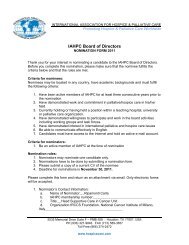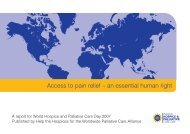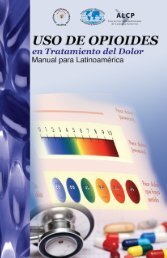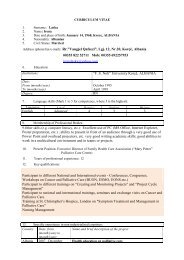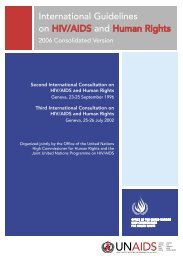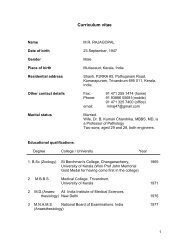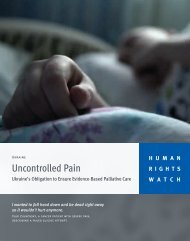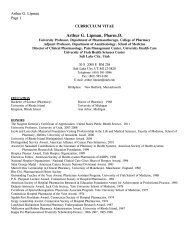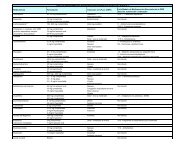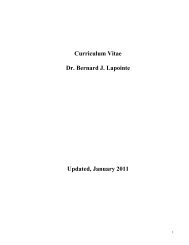INTERIGHTS Bulletin
INTERIGHTS Bulletin
INTERIGHTS Bulletin
Create successful ePaper yourself
Turn your PDF publications into a flip-book with our unique Google optimized e-Paper software.
<strong>INTERIGHTS</strong> <strong>Bulletin</strong><br />
Volume 16 Number 4 2011<br />
163<br />
clinic for a leg abscess related to drug<br />
injection, only to be asked by the<br />
doctor, ‘Why do you mess with her,<br />
she’s a drug addict!’ 31 Limited<br />
coordination and integration of<br />
services in Ukraine and throughout<br />
Eastern Europe and Central Asia often<br />
forces patients to choose between TB,<br />
HIV and drug treatment. 32 A<br />
particular form of ill-treatment and<br />
possibly torture of drug users is the<br />
denial of opiate substitution treatment,<br />
including as a way of eliciting criminal<br />
confessions through inducing painful<br />
withdrawal symptoms. 33 The denial of<br />
methadone treatment in custodial<br />
settings has been deemed by both<br />
Manfred Nowak 34 and the European<br />
Court of Human Rights 35 to be a<br />
violation of the right to be free from<br />
torture and ill-treatment in certain<br />
circumstances. Similar reasoning<br />
ought to apply to the non-custodial<br />
context, particularly in instances where<br />
governments, such as the Russian<br />
Federation, impose a complete ban on<br />
substitution treatment. 36 In many<br />
Asian countries, including Cambodia,<br />
China, Laos, Malaysia, Thailand and<br />
Vietnam, thousands of children and<br />
adults who use drugs are<br />
administratively detained without due<br />
process in compulsory centres that<br />
purport to provide addiction treatment<br />
but in fact inflict abuse amounting to<br />
torture and ill-treatment. Practices<br />
documented in these centres include<br />
long hours of forced labour under<br />
extremely harsh conditions, partial<br />
lobotomy of drug users by inserting<br />
heated needles into their brain for up<br />
to a week, imprisonment in thorn-tree<br />
cages, handcuffing of drug users to<br />
beds while they undergo withdrawal,<br />
suspension by the arms and legs for<br />
hours and beatings on the feet, and<br />
sexual abuse of inmates by guards. 37<br />
Medical care is routinely denied. A<br />
doctor in one drug detention centre in<br />
Guangxi Province, China, told Human<br />
Rights Watch, ‘The purpose of the<br />
detox center is really just disciplinary,<br />
it’s not to give people medical care.’ 38<br />
Sex workers, like people who use<br />
drugs, face ill-treatment in health<br />
settings stemming from their<br />
criminalised status. A report on sex<br />
workers in Botswana, Namibia and<br />
South Africa documented negative and<br />
obstructive attitudes on the part of<br />
medical workers, including denial of<br />
necessary healthcare services to sex<br />
workers. 39 One sex worker said, ‘I’m<br />
afraid to go to the clinic’ because of<br />
harassment from nurses and doctors.<br />
A male sex worker seeking HIV<br />
treatment in Namibia said, ‘The nurse<br />
called a few other nurses and they were<br />
laughing at me.’ Another was chased<br />
out of a hospital after a doctor<br />
screamed, ‘You are a prostitute!’ to her<br />
in front of other staff and patients. A<br />
sex worker in Kyrgyzstan said that<br />
when she went to the hospital with<br />
appendicitis, the nurse ‘became rude<br />
with me’ after learning she worked in a<br />
sauna, ‘saying that girls like me should<br />
be killed or put in jail.’ 40 She was<br />
discharged from the hospital before<br />
her stitches were removed. Breaches of<br />
privacy and confidentiality are a<br />
further indignity experienced by sex<br />
workers in health settings. In<br />
Macedonia in 2008 police rounded up<br />
more than thirty people in an area<br />
known for sex work and subjected<br />
them to forced testing for HIV,<br />
hepatitis B and hepatitis C. Following<br />
the arrests, the Ministry of the Interior<br />
released a press announcement<br />
disclosing personal information about<br />
the detainees and media outlets<br />
published photos and videos of them.<br />
The NGO Healthy Options Project<br />
Skopje (HOPS) is supporting several of<br />
the sex workers in litigation against the<br />
Ministry and the health clinic for<br />
breach of privacy and inhuman and<br />
degrading punishment. 41 In Austria,<br />
where registered sex workers are<br />
required to undergo weekly medical<br />
check-ups and take regular blood tests<br />
for sexually transmitted diseases, the<br />
Committee against Torture recently<br />
noted ‘reports of alleged lack of privacy<br />
and humiliating circumstances<br />
amounting to degrading treatment<br />
during medical examinations.’ 42<br />
Lesbian, gay, bisexual, transgender and<br />
intersex (LGBTI) persons have<br />
reported abuses in health settings that<br />
amount to cruel and degrading<br />
treatment. In Kyrgyzstan, doctors have<br />
refused to treat LGBTI persons and<br />
accompanied this refusal with cruel<br />
and degrading comments such as:<br />
homosexuality is ‘absurd,’ ‘condemned<br />
by Islam’ or ‘abnormal,’ or that LGBTI<br />
people are ‘not our patients.’ 43 Health<br />
providers in Jamaica have ‘refused to<br />
treat men whom they knew or<br />
perceived to be gay and made abusive<br />
comments to them, at times<br />
instigating abusive comments by<br />
others.’ 44 In one case, ‘a health worker<br />
told a gay man with gonorrhea that he<br />
was ‘nasty’ and asked why he had sex<br />
with other men.’ Some health<br />
providers still treat homosexuality as a<br />
mental disorder, a form of<br />
discrimination that may also amount<br />
to cruel, inhuman or degrading<br />
treatment, and subject them to<br />
‘conversion therapy’ with severe<br />
psychological consequences. 45 Transgender<br />
people routinely face degrading<br />
treatment in health settings stemming<br />
from discrimination and prejudice on<br />
the basis of gender identity or<br />
presentation. In the United States, a<br />
2010 report of the National Gay and<br />
Lesbian Task Force and the National<br />
Center for Transgender Equality<br />
documented cases of transgender<br />
people being refused care outright<br />
because they were transgender or<br />
gender non-conforming, postponing<br />
their own care due to fear of disrespect<br />
by medical providers, harassment in<br />
medical settings and other abuses. 46<br />
One survey respondent reported<br />
problems finding a doctor who would<br />
treat or ‘even look at you like a human<br />
being.’ A survey from Europe similarly<br />
found that transgender people avoided<br />
routine medical care because they<br />
anticipated prejudicial treatment. 47<br />
Transgender people additionally face a<br />
particular form of ill-treatment in<br />
health settings stemming from<br />
arbitrary requirements that they<br />
undergo psychiatric evaluation, genital<br />
surgery or even sterilisation in order to<br />
officially change their gender. Such<br />
requirements are inherently a form of<br />
coerced medical treatment that may<br />
violate the right to be free from torture<br />
and ill-treatment. Children born with



